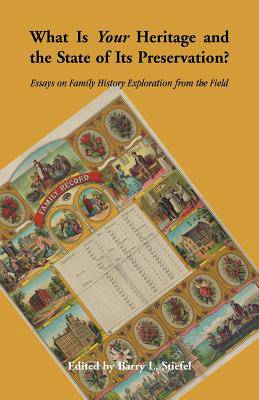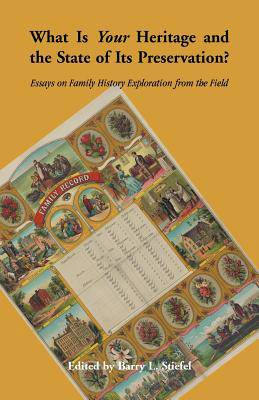
- Afhalen na 1 uur in een winkel met voorraad
- Gratis thuislevering in België vanaf € 30
- Ruim aanbod met 7 miljoen producten
- Afhalen na 1 uur in een winkel met voorraad
- Gratis thuislevering in België vanaf € 30
- Ruim aanbod met 7 miljoen producten
Zoeken
What is Your Heritage and the State of its Preservation?
Essays on Family History Exploration from the Field
Barry L Stiefel
Paperback | Engels
€ 24,45
+ 48 punten
Uitvoering
Omschrijving
During the Spring 2014 semester several students at the College of Charleston's Historic Preservation and Community Planning program participated in their Senior Seminar titled "What is Your Heritage and the State of its Preservation?". For this class, each student had to conduct a lengthily in-depth research paper on the state of preservation of heritage sites, material objects, or traditions associated with their family's history. The assignment used genealogical research methods in an unconventional way by elevating the assessment of ancestors beyond typical names, dates, and generational succession; so commonly found on most family trees. The students had to ask profound questions to guide their inquiry, such as "Where (as in a specific spot) did my ancestors come from?"; "What was life like for them?"; and "What cultural traditions were important for them?". In this way people, whether through a specific individual or a group, became connected and contextualized within time, place, and society. Moreover, the students had to utilize and synthesize the knowledge, skills, and experiences they acquired in other classes from past semesters. Essays contributed within this volume are by Blanding Lee Clarkson, Emily Floyd, Kaitlin Glanton, Dannielle Nadine Hobbs, and Michael C. Patnaude, as well as a prototype from when the editor was a student. Barry L. Stiefel, Ph.D. is an Assistant Professor in the Historic Preservation and Community Planning Program at the College of Charleston, where he enjoys collaborating on projects with students.
Specificaties
Betrokkenen
- Auteur(s):
- Uitgeverij:
Inhoud
- Aantal bladzijden:
- 242
- Taal:
- Engels
Eigenschappen
- Productcode (EAN):
- 9780788455964
- Verschijningsdatum:
- 5/01/2015
- Uitvoering:
- Paperback
- Formaat:
- Trade paperback (VS)
- Afmetingen:
- 140 mm x 216 mm
- Gewicht:
- 285 g

Alleen bij Standaard Boekhandel
+ 48 punten op je klantenkaart van Standaard Boekhandel
Beoordelingen
We publiceren alleen reviews die voldoen aan de voorwaarden voor reviews. Bekijk onze voorwaarden voor reviews.











